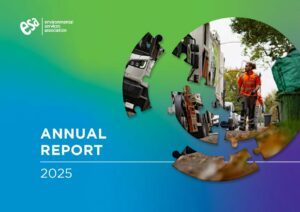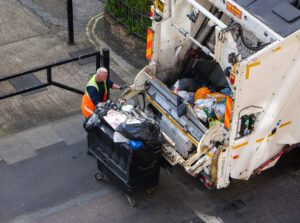The results of a recent independent study conducted for the Environmental Services Association (ESA) found that nearly 90% (87%) of people working in the recycling and waste industry report feeling safe at work.
The survey also found that more than 90% of those employed by the sector felt happy to raise health and safety concerns within their organisation if they had any, while around 85% of people felt that adequate training enabled them to undertake work safely and that they were given useful safety information.
The ESA’s Health & Safety Culture survey was conducted by Snap Surveys between July and September and attracted nearly 2,400 responses from people who opted in to take a short online survey. ESA members promoted the survey across their operational businesses and it was also open to the wider sector – with the participation link promoted across the trade media and via other associations.
The ESA first undertook the survey in 2022 to set a benchmark against nine different factors it believes contribute to the industry’s health and safety culture. The results from the 2024 survey were similar to the 2022 results, suggesting that there is a positive overall health and safety culture, with the overwhelming majority of the large respondent group agreeing with all of the statements.
For the second survey in a row, the quality of welfare facilities and attitudes towards mental health received the lowest scores compared with other factors, although most respondents still viewed these as positive.
A full summary of the survey results can be viewed and downloaded here
ESA Policy Advisor, Stephen Freeland, said: “An improved health and safety culture was identified as a key priority area underpinning the ESA’s Health & Safety Strategy.
While it is perhaps a little disappointing that there is no significant change to report in safety culture in the intervening two-year period between the first and second surveys, it is nonetheless encouraging that satisfaction levels across most of the nine statements have remained consistently high.
Clearly there remains some work for our industry to do in respect of welfare facilities and attitudes towards mental health, both of which are areas ESA has produced guidance and resources to support over the last year.”




